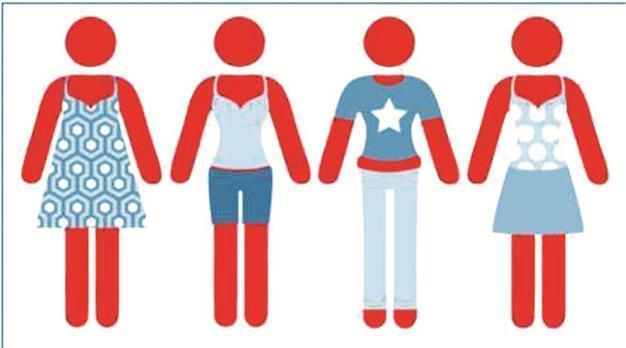Campaign against dressing of expatriates starts in Qatar
ISTANBUL - Hürriyet Daily News

The campaign aims to educate exptariates about wearing appropriate dress.
When in Rome, do as the Romans do. That is the message of two campaigns started by local women in the Gulf countries of
Qatar and the United Arab Emirates, Aljazeera website has reported.
Najla al-Mahmoud is a Qatari behind the “One of Us” public awareness push, which hopes to educate foreigners in Qatar about wearing the appropriate dress.
Specifically, she wants people in her country to cover up between the shoulders and the knees. During the summer “scenes of exposed flesh increase,” al-Mahmoud said.
“We are offended by this but we are sure that people don’t know and we are sure that people will respect this. Why wouldn’t they? We want to educate them.”
Most local women in Qatar and the UAE wear an “abaya,” a black garment that covers most of the body. Men wear the “kandura,” which tends to be ankle-length and a shade of white.
The “UAE Dress Code”
campaign, started by locals Hanan al-Rayes and Asma al-Muhairi, began out of disgust at the sight of foreigners dressed in what they deemed to be inappropriate attire, according to media reports. “Whether you like it or not, this country has its own culture that should be respected and protected by its own people,” read one of their recent tweets.
Public awareness alone not enough Hamad al-Rahoumi, a member of the UAE Federal National Council (FNC), does not think public awareness alone is enough, as there are people who are aware of cultural norms but choose to ignore them. Al-Rahoumi has suggested legally enforcing a dress code, but the law would act more as a deterrent than to punish people.
On social media and Qatari networking sites, some foreign women who have both applauded and denounced the modesty movement said they think time would be better spent campaigning to enforce laws that could save lives, for example fining people who smoke in areas where lighting up is banned, or requiring the use of seat belts.
dressing,
